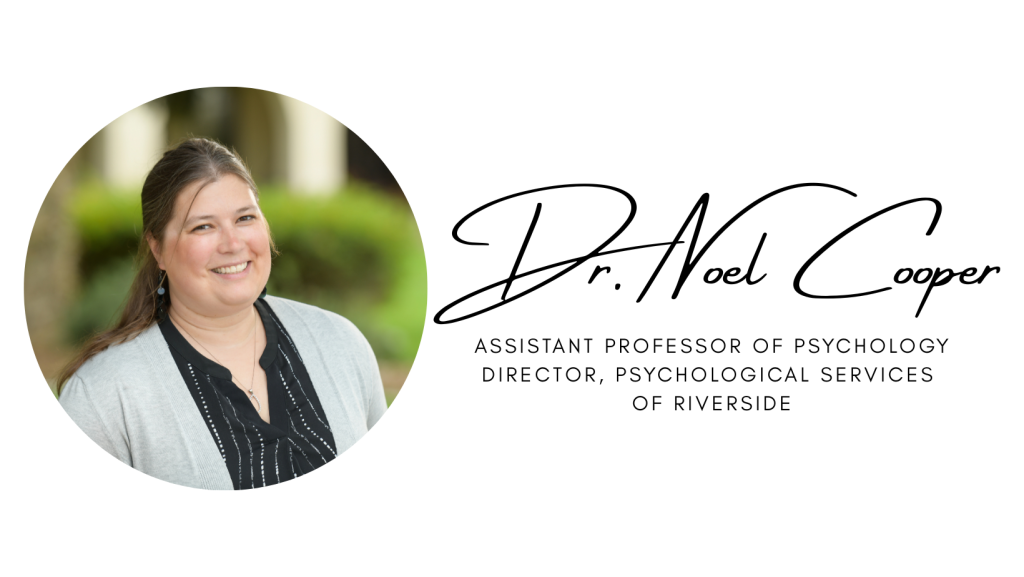Applying for a PsyD Program
Many psychology students wonder about graduate school: which program is right for them and how to navigate the application process. In this three-blog series, you can hear from one of CBU’s PsyD faculty on the why, who, and how of the PsyD program, and you can hear from the CSHB student worker, recently accepted into CBU’s PsyD program, as she reflects on the emotional journey and the nitty gritty of navigating the application process.

The spring semester at CBU is full of additional energy as many students prepare to complete their undergraduate educational journey. A combination of excitement and exhaustion permeates the air. And, at the same time, many students find themselves unsure of what comes next. Maybe this is you. Or maybe you are considering returning to school to receive additional training. Whatever your circumstance, you may be wondering: How do I decide what to do next?
This question is bigger than one blog post could tackle. However, if you find yourself in a position wondering how to pursue a career in mental health services, this blog post is for you. As a professor in the PsyD program and clinical director in our training clinic, I want to help you think through the questions and process related to applying for a PsyD program.
Why a PsyD?
There are a number of different degrees and licensure options for individuals interested in working in the field of mental health. Why should you pick a doctorate in clinical psychology rather than a Master’s degree focused on mental health? Professional Counselors, Marriage and Family Therapists, and Social Workers all complete a master’s program and can provide therapy. Each degree has its own particular lens and emphasis on the therapy process. A doctoral degree makes the most sense for people who want to be therapists who do more than therapy. In addition to providing psychotherapy, doctoral-level psychologists conduct psychological assessments and often serve in other roles like supervisor, administrator, and consultant. A doctoral degree is also often required to conduct clinical research or to teach in a college or university setting. If you’re hoping to practice in several of these ways, a PsyD might be a good way to go. A PhD in clinical psychology offers much of the same training in mental health, but with more of an emphasis on research.

Why CBU?
The PsyD program at CBU is distinct from most other clinical psychology programs in its emphasis on diversity, particularly the religious and spiritual aspects of diversity. Our program has an intentional focus on preparing students to consider a distinctly Christian approach to psychology, therapy, and mental health. With that training background, students are able to work with Christian clients from within a shared Christian worldview. If you would like to learn more details about our program, click here .
Should You Apply?
When my colleagues and I review applications for the PsyD program here at CBU, one of the main things that we’re looking for is basic people skills. Whether or not therapy is your focus, clinical psychology is all about working with people and understanding people. Some questions to ask yourself are: Am I comfortable talking with all kinds of people? Am I interested in people’s stories? Can I listen without judgment or giving advice? Do I tend to get along with others? These are skills that can be strengthened and refined through training, but it helps if you are already inclined towards these kinds of interactions with others. If you’re not sure whether this describes you, it can be helpful to ask friends or family for insight and constructive feedback.
A third quality for people starting a PsyD program is the willingness and ability to commit to a five-year, intense program. The PsyD program is longer than a master’s program, which means longer until you are licensed and earning a professional salary. With its requirements for classes, practicums, and dissertation research, the PsyD program is also more intense than many master’s programs, and, unlike some master’s programs, it is not possible to work full-time while in the PsyD program. The length and expense of the program require almost everyone to take out student loans. Carefully consider whether you are willing to take on the financial obligations and restrictions of being a doctoral student. Also think about whether you’re willing to do school—with exams, papers, and class attendance—for that long. The rewards on the other side of graduation are extensive and well worth it (in my very biased opinion!), but the process of getting there can be arduous. The transition from being an undergraduate student to a graduate student can be challenging. As an undergrad, the academic aspect of being a student can feel secondary to the social and developmental aspects. As a graduate student, academics are definitely the main focus.

A second important trait for a doctoral program candidate is strong writing skills. A PsyD program requires a lot of writing, including a multi-chapter dissertation. Knowing how to organize your thoughts and put them into words is one key to success. Reading academic writing, like journal articles, can help you get familiar with the vocabulary and style that is expected for doctoral students. If writing isn’t a particular strength for you, you can work towards building it up by asking professors for feedback and using programs like Grammarly to make corrections and edits.
A final quality that is important for this program is the ability to be self-reflective and open to feedback. Becoming a clinical psychologist is a developmental process that requires growth and change. The PsyD program at CBU is a competency-driven program; competency is defined as having the necessary knowledge, skills, and attitudes to be a clinical psychologist. The knowledge base is, in many ways, the easiest aspect of competency to develop. The skills are how we apply that knowledge in the therapy room—what to say, how to say it, when to say it. This is where the basic people skills I mentioned earlier come into play and serve as the starting ground for this aspect of competency. The attitudes that we seek to develop as psychologists include a non-judgmental stance, curiosity, openness, compassion, reflectivity, and patience, among others. Developing these attitudes requires a willingness to accept feedback (from clients, supervisors, peers, and professors) and then reflect on that feedback. The intensity of spending five years focused on this development will change you as a person.
Crafting a Successful Application
As you’re writing your essays and compiling your resumé, look for ways you can highlight any relevant experiences. We know that most applicants won’t have actual clinic experience, and we don’t expect that, but if you’ve had any work or volunteer experience that involves assisting or serving others, that shows evidence of basic helping skills. Even a customer service job demonstrates that you have some competence with conflict management. A teaching job can highlight people skills. Case management work can highlight the ability to conceptualize people’s situations. Think of how you’ve been of service to others and share those stories.

Your application essays are also a key place to highlight any specific interests that you have within clinical psychology. Everyone who is applying wants to be a psychologist because they want to help people, but if there are specific groups of people that you want to help or specific ways that you want to help, telling us about that can help your application stand out. You’re not making a lifelong commitment to a particular type of work in your application essay—it’s fine to change your mind later. You’re just giving some insight into what sparks your passion.
For many applicants, that spark came from some aspect of their life story. Feel free to share some details about what brought you to the field of clinical psychology, but make sure to keep from oversharing. Give the shape of the story but not necessarily all of the details.
Next Steps
To learn more about the application process, click here. You’ll need to gather your transcript, your resume, and four recommendation letters. You’ll also need to write an application essay. After your materials are submitted, you’ll be contacted for an interview with one of the PsyD program faculty, which will focus on many of the points already discussed here.
Applying for any graduate program, including our PsyD program, involves a lot of thought and prayer, calculations and plans, anxiety and second-guessing, dreams, and hope. It is an intimidating decision for many, and a long journey for those who take it, but it’s important to remember that many people do take it. You won’t be alone in the program, and you’re not alone in this season of discernment. Application is a challenging process, and the program is a challenging program – but application is an accomplishable process, and the program is an accomplishable program. Lean on your friends, your family, and your professors for support as you decide your next steps. We hope to hear from you!

0 Comments